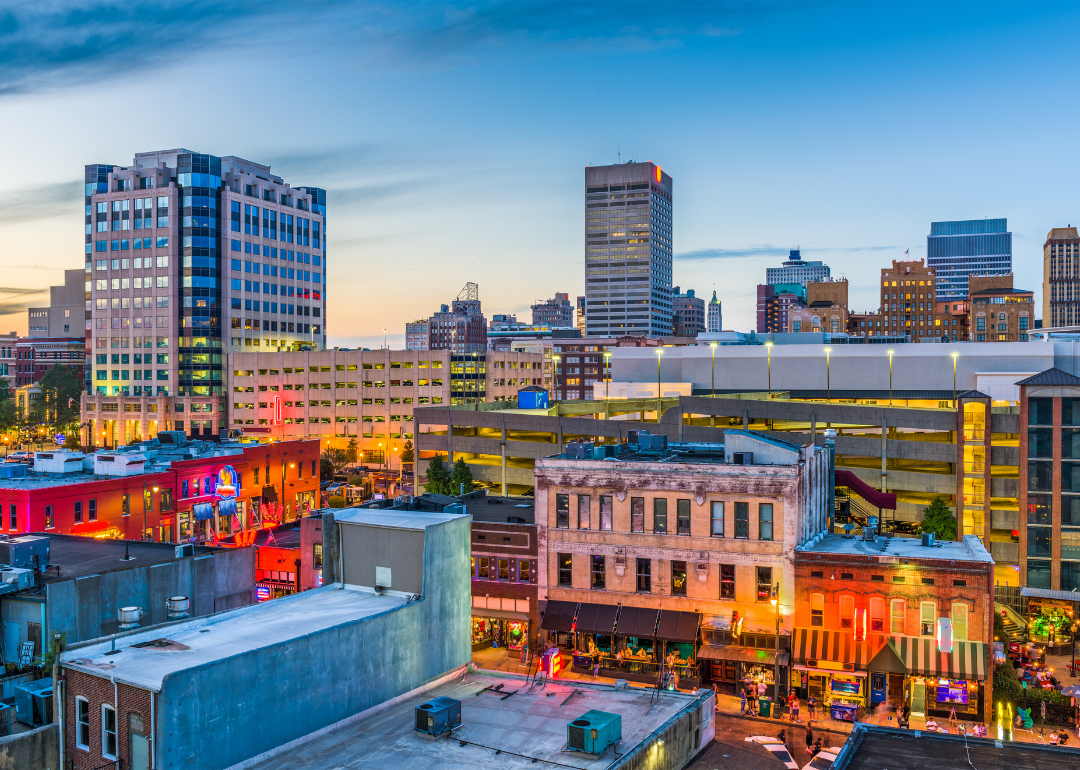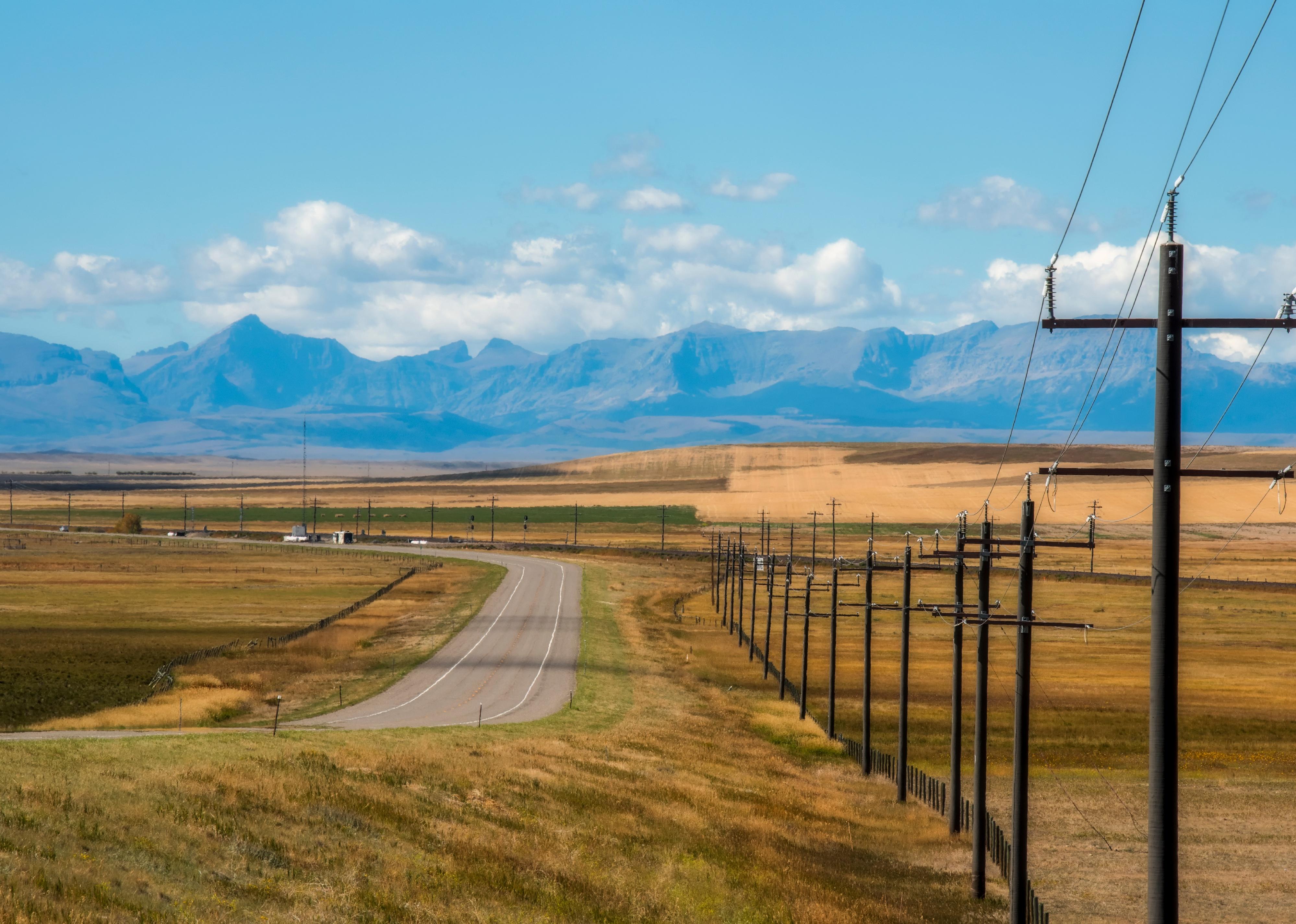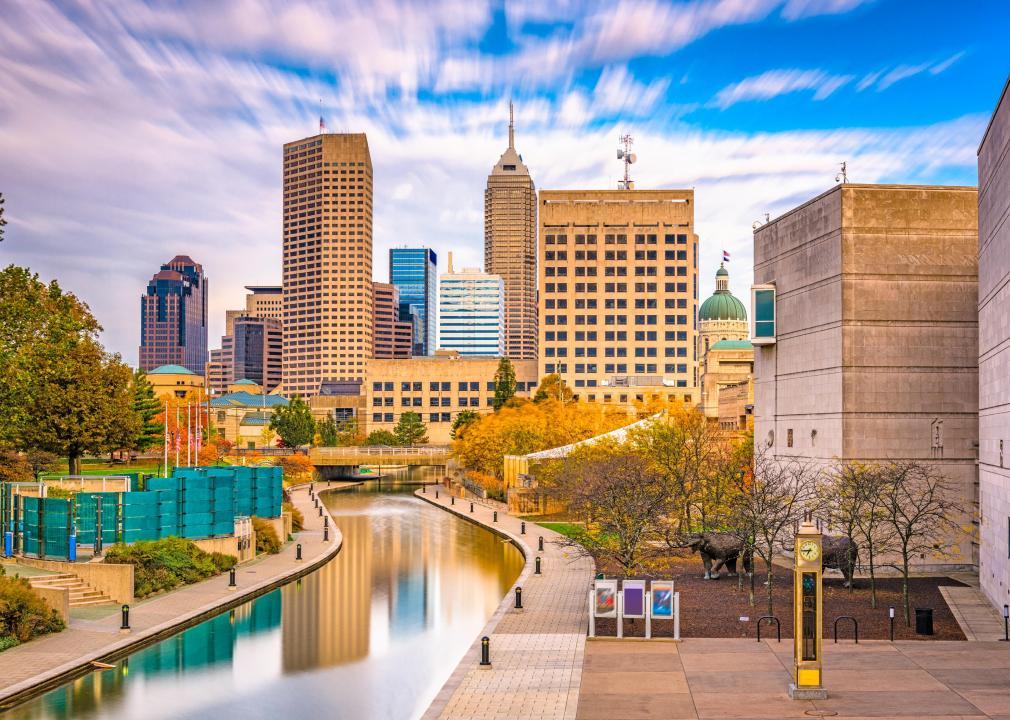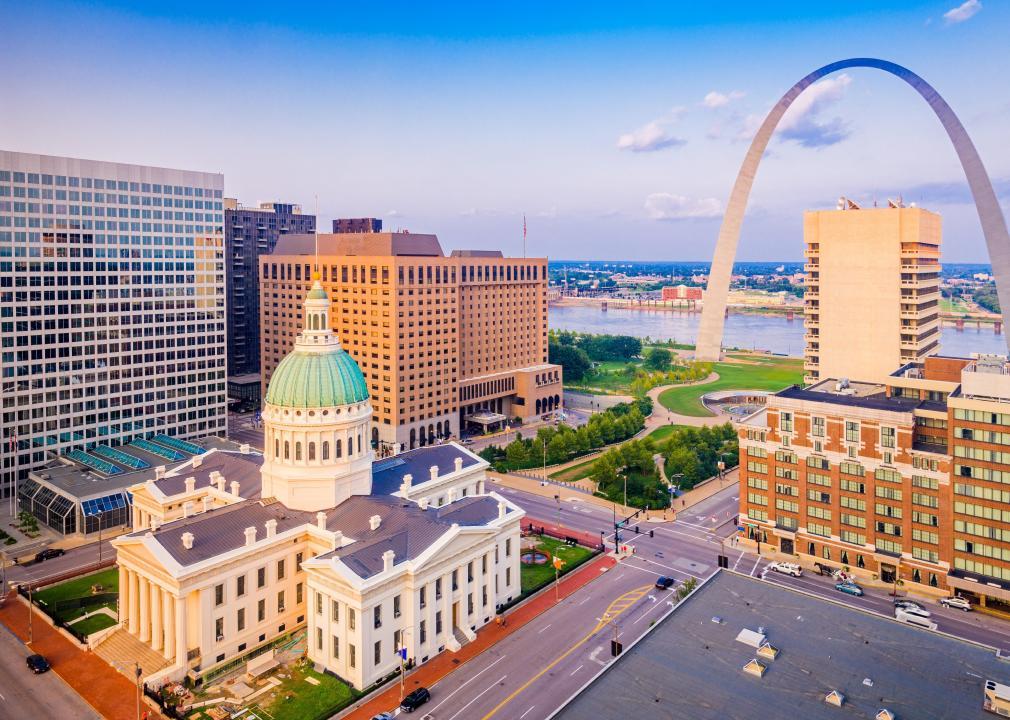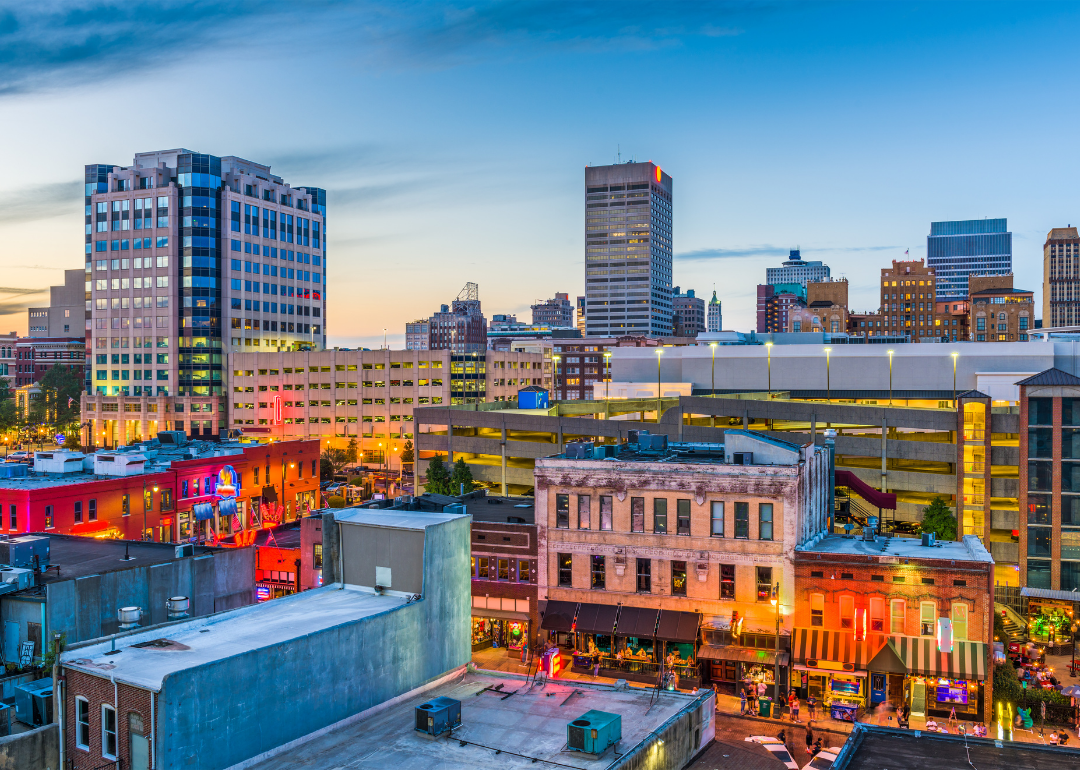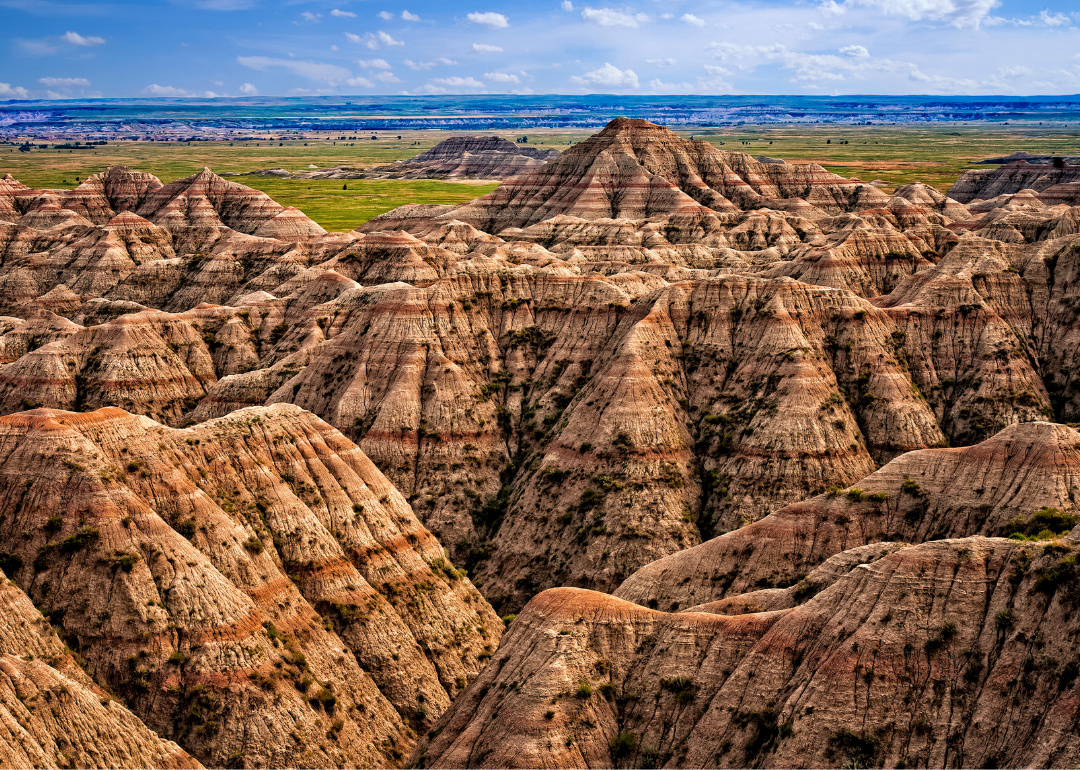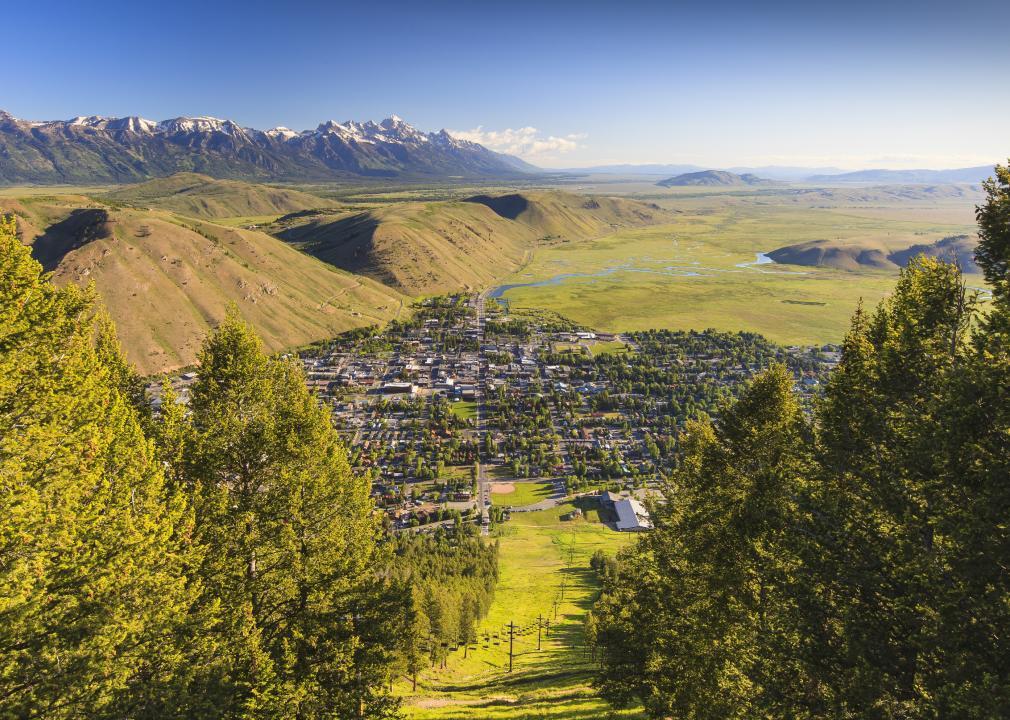Most liberal county in conservative states
Canva
Most liberal county in conservative states
Shelby County, Tennessee
Whether a state is considered red or blue is only one side of the story. In many states, despite majority leanings, there are neighborhoods, towns, or even entire counties that hold steadfast against their neighbors and vote for the party that holds an opposing ideology to a majority of the state’s residents.
Whether or not this means those enclaves will see the results they want depends on their state’s unique circumstances. In many states, liberal areas are still subject to hyper-conservative policies designed to apply to the state at large. In Florida, for instance, Gov. Ron DeSantis has restricted discussions of gender identity in schools and passed one of the nation’s narrowest abortion restrictions—both of which affect residents of the comparatively progressive Miami and Fort Lauderdale. In Ohio, preemption laws bar cities from regulating certain state-mandated issues, meaning that liberal pockets in Columbus and Toledo are still beholden to the conservative-majority gun laws and environmental policies.
Stacker compiled voter turnout data from the New York Times and statewide political ideology data from Gallup to rank states by their share of self-identifying conservatives. Ties were broken by the corresponding percentage of liberals, as able. Voter data was then used to identify counties that voted against this statewide average ideology.
Some “battleground” states that split relatively evenly between conservative and liberal didn’t make either list. Detailed county voter turnout data was unavailable for Virginia, Alaska, Louisiana, and Alabama. For Washington D.C., ideological insights came from a study by the Pew Research Institute, rather than the Gallup data.
When looking at why an island of liberalism may exist in an otherwise heavily conservative state, there are typically a few reliable tells. Many of the counties included in this list are home to colleges or universities; this means relatively young and well-educated populations, which almost always equates to liberal leanings. The same is true for dense urban centers, which are usually home to higher concentrations of communities of color and foreign-born migrants—groups that also lean blue.
Native American communities often vote Democrat and are also often isolated within Republican-majority states; unsurprisingly, this is the case for more than a few counties included here. Even ski towns tend to transform a county into a stronghold for liberalism in otherwise conservative areas by attracting mostly upper-class, well-educated transplants as residents.
Read on to discover where liberal strongholds exist in otherwise staunchly conservative states, and what accounts for the unexpected shift from red to blue.
![]()
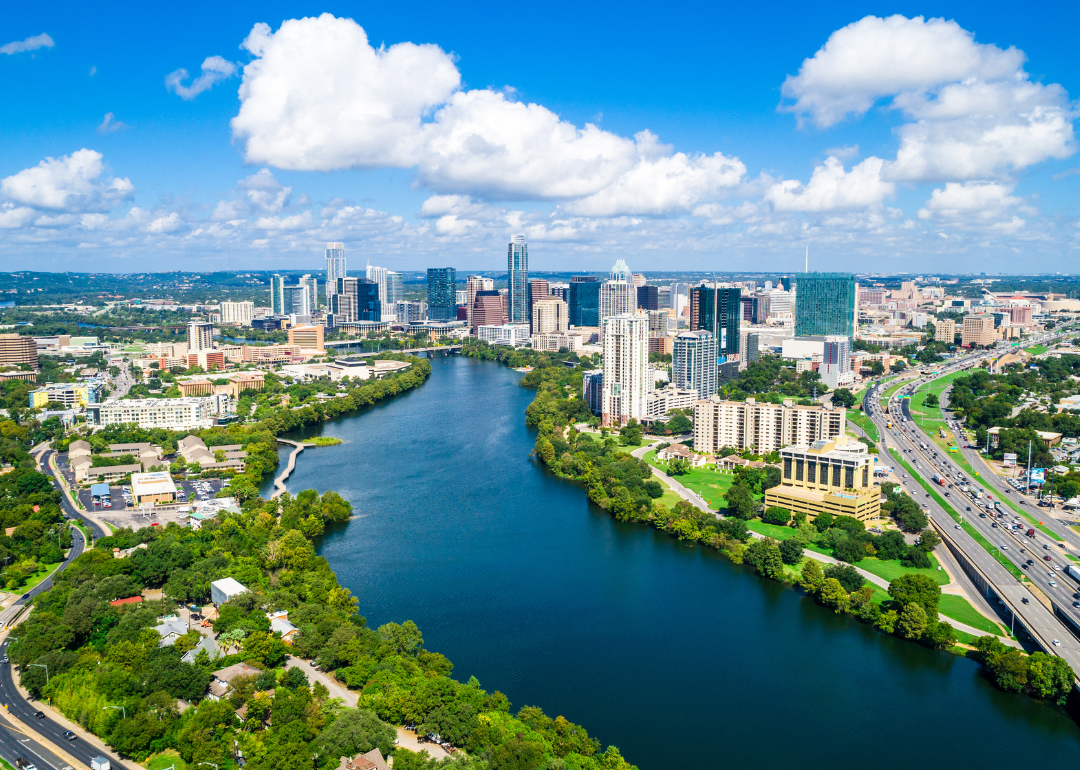
Canva
#19. Texas: 20% liberal, 38% conservative (tie)
Travis County, Texas
– Most liberal county: Travis County
— Democratic votes in 2020: 435,860 (71.4%)
— Total votes cast: 610,349
Travis County—where the state capital of Austin can be found—represents a larger shift in many Texas counties towards the left, due in large part to a progressively younger population and incoming migration. As of 2022, just 10% of Travis County’s population was 65 and older, and a full third of residents identified as Hispanic or Latino.
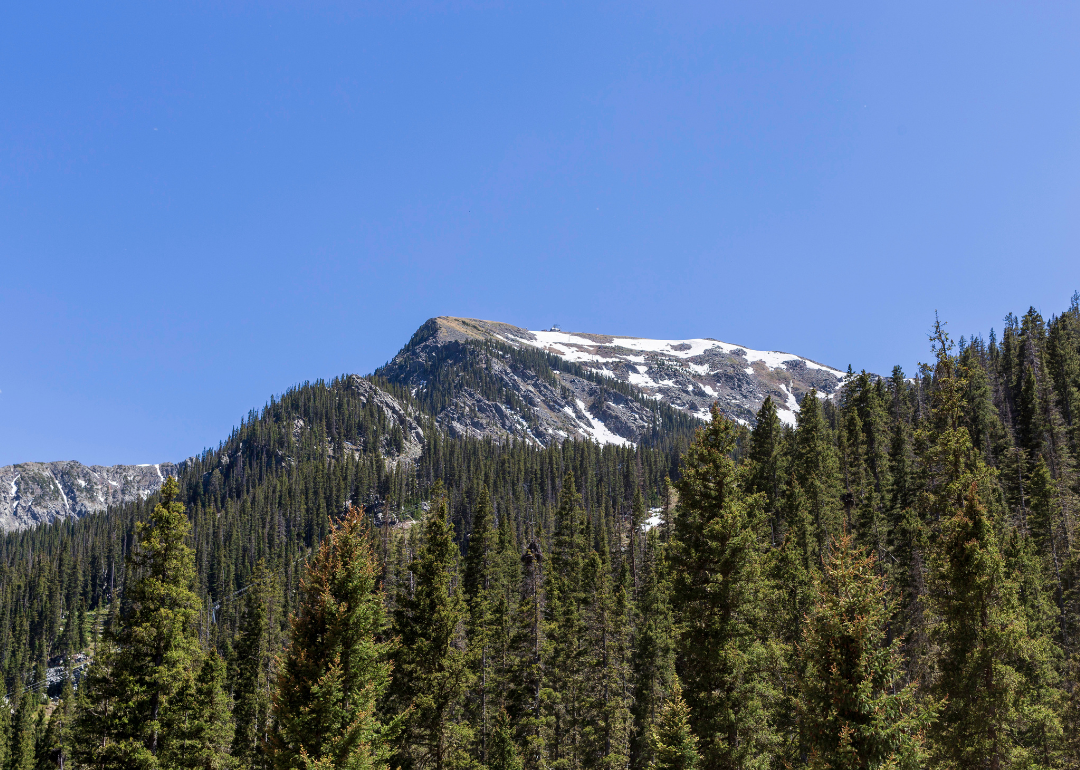
Canva
#19. New Mexico: 20% liberal, 38% conservative (tie)
Taos County, New Mexico
– Most liberal county: Taos County
— Democratic votes in 2020: 13,121 (76.4%)
— Total votes cast: 17,181
Taos County comprises several Hispanic and Native American communities, resulting in a staunch Democratic leaning. Additionally, the county is home to the University of New Mexico-Taos, providing a concentration of young, well-educated voters that typically results in liberal tendencies.
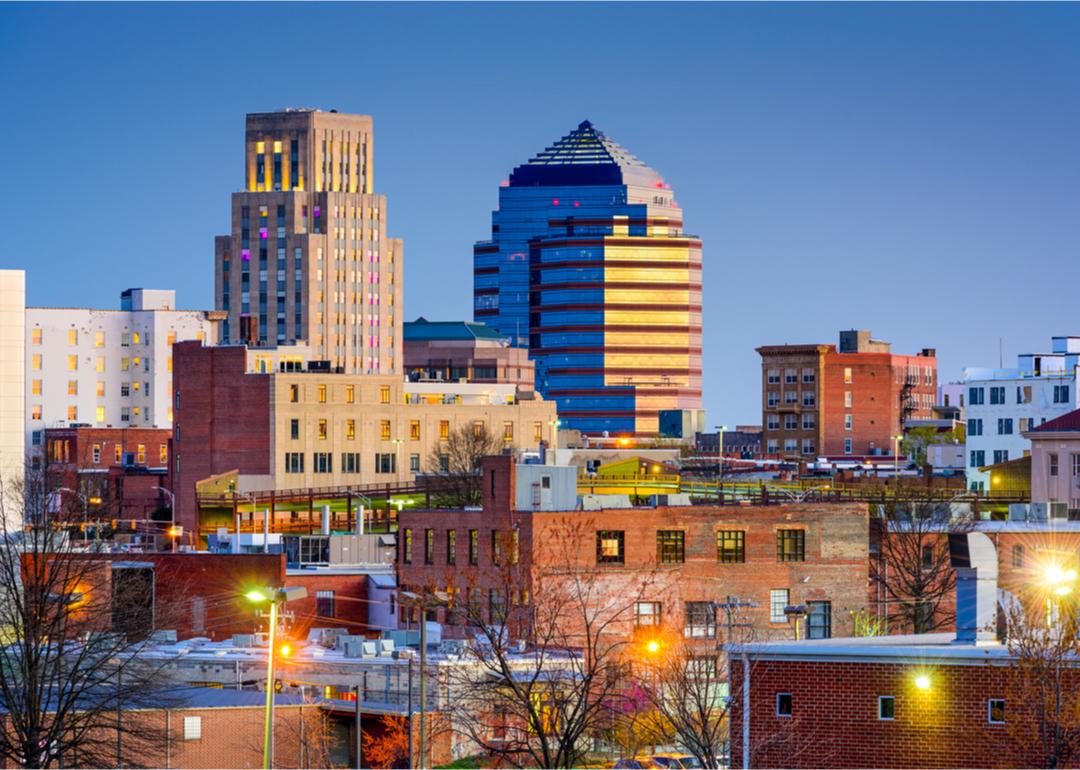
Sean Pavone // Shutterstock
#18. North Carolina: 21% liberal, 39% conservative
Durham County, North Carolina
– Most liberal county: Durham County
— Democratic votes in 2020: 144,364 (80.4%)
— Total votes cast: 179,594
Durham County’s more liberal leaning is possibly due to its large concentration of urban centers and universities. The county holds the cities of Durham and parts of Raleigh, as well as most of the state’s most well-known institutes of higher education, including Duke University, North Carolina Central University, and Durham Technical Community College.
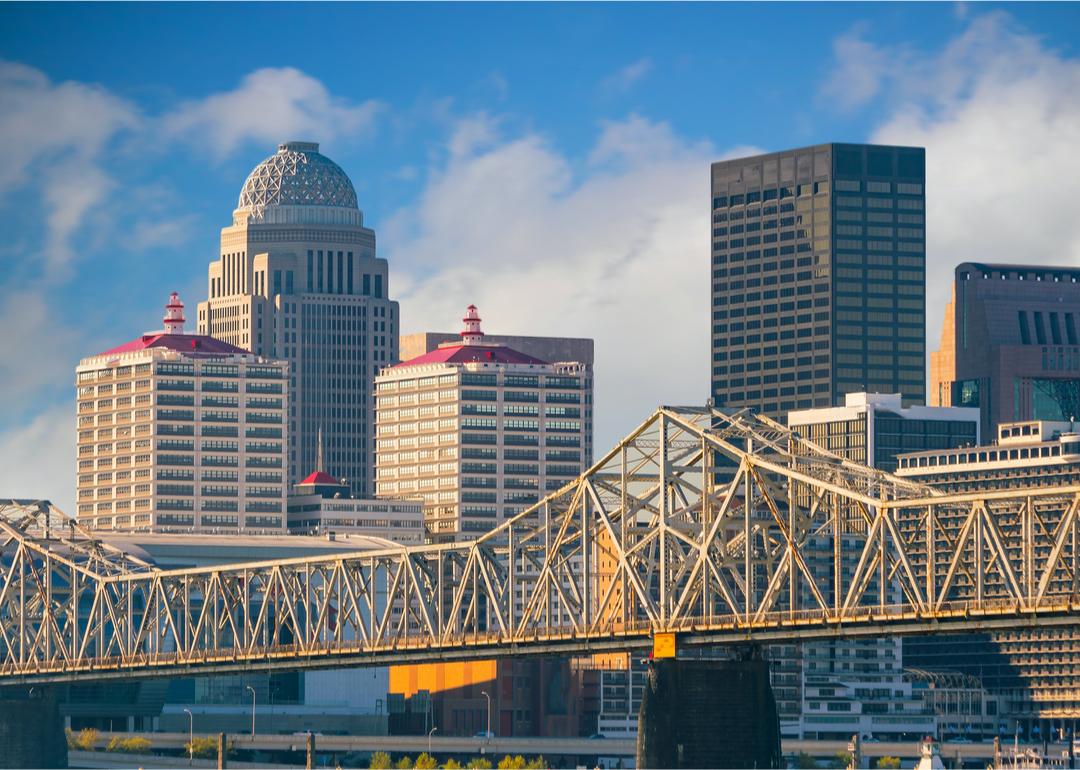
f11photo // Shutterstock
#17. Kentucky: 20% liberal, 39% conservative
Jefferson County, Kentucky
– Most liberal county: Jefferson County
— Democratic votes in 2020: 228,272 (59.1%)
— Total votes cast: 386,061
Jefferson County is the most heavily populated county in the state—it is home to more than 780,000 residents, while the next-largest, Fayette County, has less than half that count—and includes Louisville, the state’s largest city. Besides a dense population, the county is also home to a heavy concentration of universities and colleges, with one college per 11 square miles.
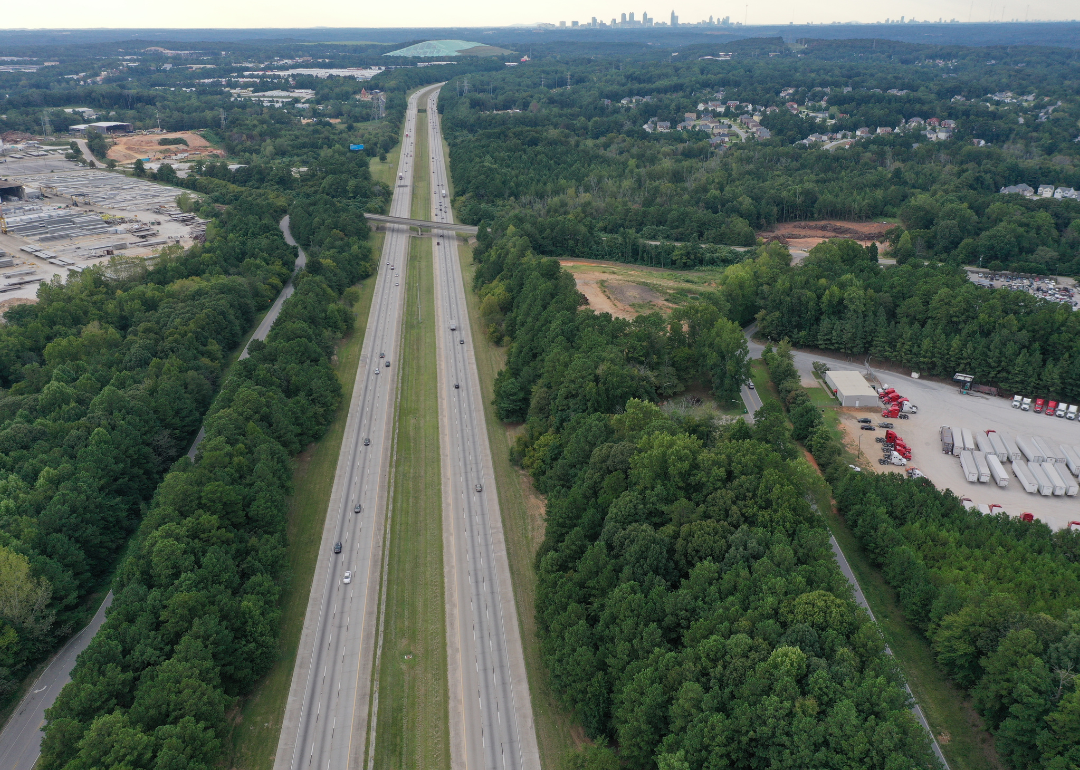
Josemejia // Shutterstock
#16. Georgia: 19% liberal, 39% conservative
Clayton County, Georgia
– Most liberal county: Clayton County
— Democratic votes in 2020: 95,476 (85.0%)
— Total votes cast: 112,344
Clayton County is a particularly diverse area, with 73.4% of its population self-identifying as Black and 13.5% as Hispanic or Latino. This accounts for its uniquely Democratic leaning; though previously a swing county, the increasing number of Black Americans and other people of color relocating to the county has shifted it to staunchly liberal.
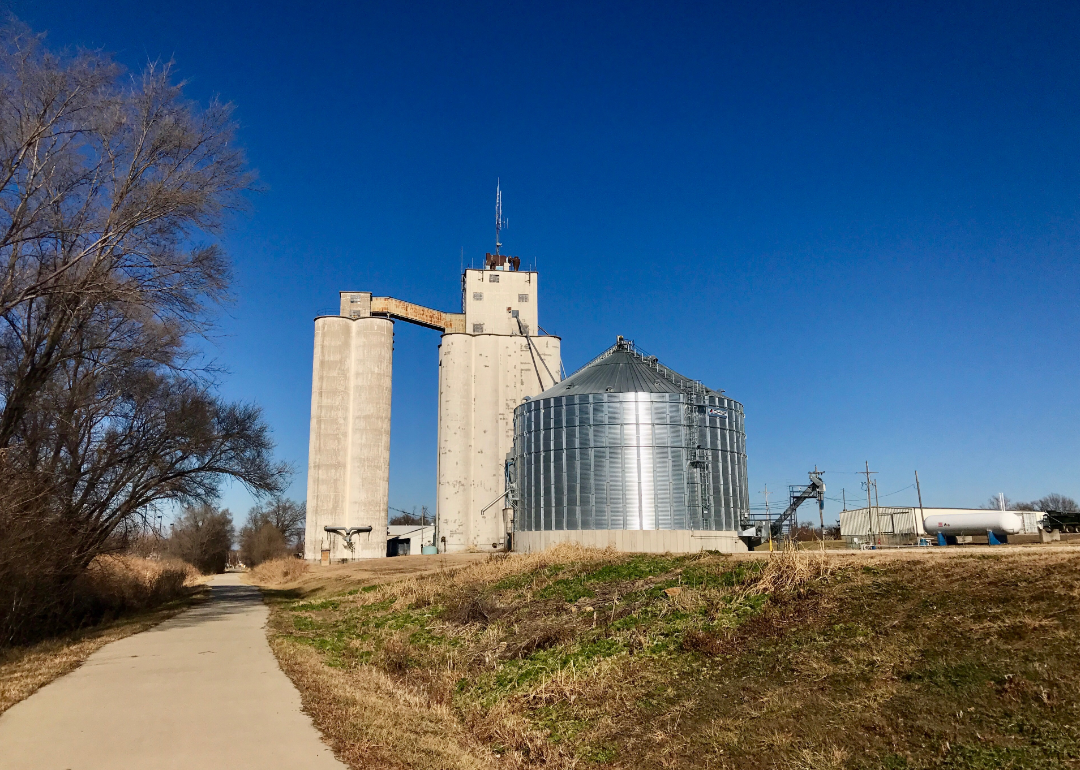
Canva
#13. Kansas: 18% liberal, 39% conservative (tie)
Douglas County, Kansas
– Most liberal county: Douglas County
— Democratic votes in 2020: 40,785 (68.6%)
— Total votes cast: 59,495
Douglas County’s blue dominance is owed in large part to encompassing the city of Lawrence, widely perceived as a liberal college town. Lawrence is home to the University of Kansas, which self-describes as “the state’s flagship institution.” Douglas County is particularly young and upper-middle-class: just 13.5% of the population is over 65, and the median household income is $62,594.
Dirk Wierenga // Shutterstock
#13. Montana: 18% liberal, 39% conservative (tie)
Glacier County, Montana
– Most liberal county: Glacier County
— Democratic votes in 2020: 3,610 (64.3%)
— Total votes cast: 5,617
Home to the Blackfeet Indian Reservation, Glacier County residents are majority Native American, with 64.6% of the county’s 13,681 residents self-identifying as American Indian or Alaska Native. Native American communities tend to lean more liberal than conservative, making this county a stronghold for Democrats, even while surrounded by red-voting counties.
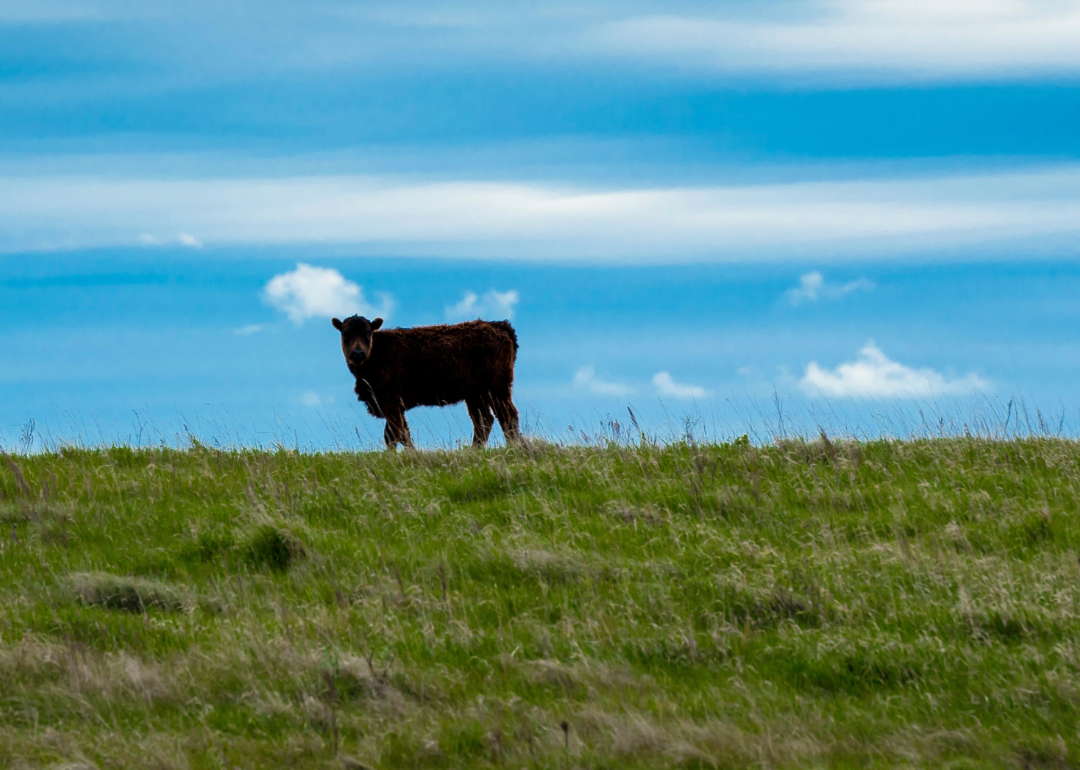
Joseph Sohm // Shutterstock
#13. North Dakota: 18% liberal, 39% conservative (tie)
Sioux County, North Dakota
– Most liberal county: Sioux County
— Democratic votes in 2020: 804 (67.8%)
— Total votes cast: 1,186
Like Glacier County in Montana, Sioux County’s large proportion of Native American residents accounts for its liberal skew. Though the tiny area only has 3,711 residents, 83.1% of them are American Indian or Alaska Native.
Sean Pavone // Shutterstock
#12. Indiana: 17% liberal, 39% conservative
Marion County, Indiana
– Most liberal county: Marion County
— Democratic votes in 2020: 247,772 (63.6%)
— Total votes cast: 389,618
Marion County is home to the state’s most populous city, Indianapolis, as well as several universities. This makes the region comparatively urban and young when measured against surrounding central Indiana counties. Additionally, the county is relatively more diverse than nearby majority-white areas, with a 29.6% Black population, compared to 10.2% in the state in general.
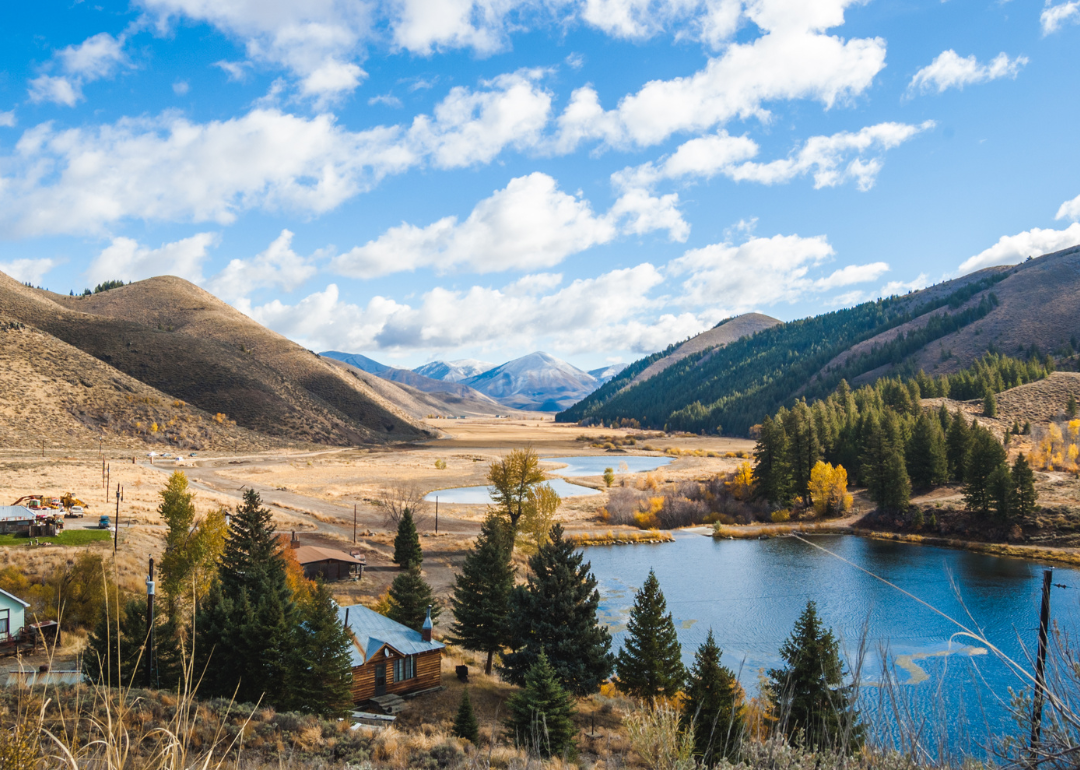
Canva
#11. Idaho: 17% liberal, 40% conservative
Blaine County, Idaho
– Most liberal county: Blaine County
— Democratic votes in 2020: 8,919 (67.1%)
— Total votes cast: 13,289
Though not home to the state’s most populated cities, Blaine County does have one notable locale that is thought to largely account for its reputation as a Democratic stronghold: the Sun Valley ski resort. The county is subsequently home to a large number of out-of-staters who choose to live part-time or retire there, and who are usually upper-class, well-educated, and white. 94.4% of Blaine County residents are white, and the median household income is $71,749.
Sean Pavone // Shutterstock
#10. Missouri: 20% liberal, 41% conservative
St. Louis city, Missouri
– Most liberal county: St. Louis
— Democratic votes in 2020: 110,089 (82.3%)
— Total votes cast: 133,793
Home to nearly 1 million residents, St. Louis County (not to be confused with the independent city of St. Louis, which belongs to no county) is diverse, well-educated, urban, and affluent compared to other parts of the state. Only 67.4% of the population is white alone; 25.1% is Black. The median household income is $72,562. Additionally, the county is home to a large concentration of institutes of higher education, including Washington University in St. Louis, Saint Louis University, and Maryville University.
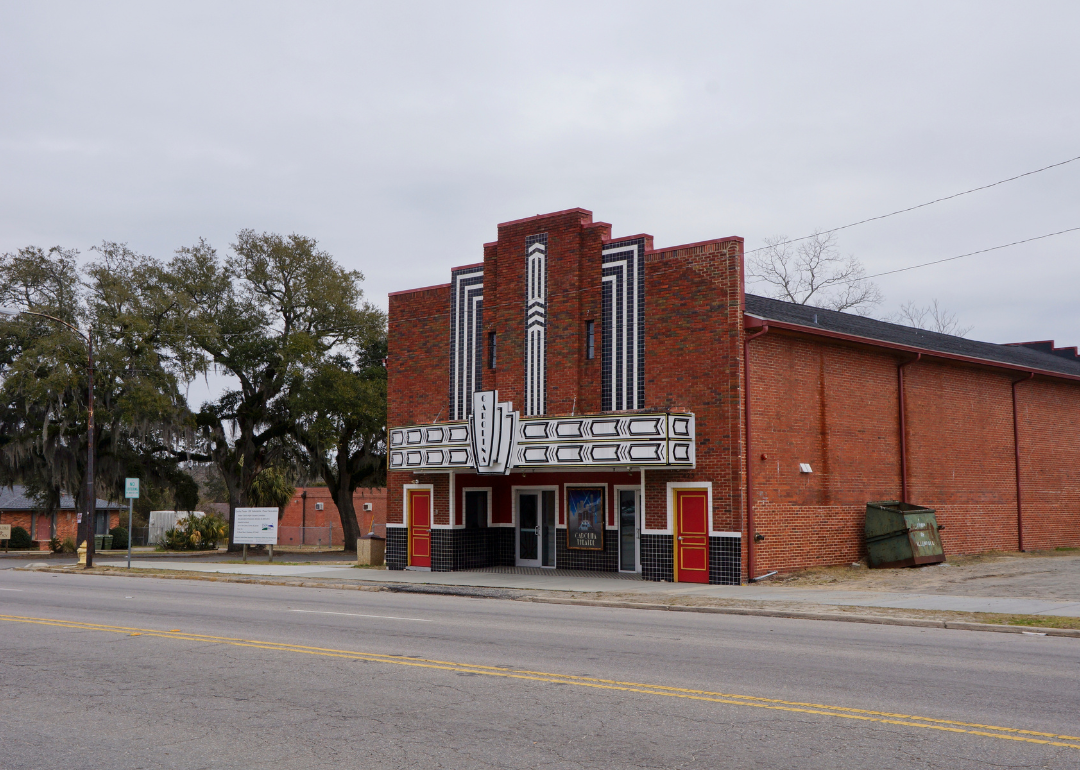
Bennekom // Shutterstock
#9. South Carolina: 16% liberal, 41% conservative
Allendale County, South Carolina
– Most liberal county: Allendale County
— Democratic votes in 2020: 2,714 (75.7%)
— Total votes cast: 3,585
Though Allendale is the smallest and among the most poor and rural counties in the state, it is also one of the most politically active. Though these superlatives would usually tilt a county towards conservatism, Allendale County is also majority (72.7%) Black, and the region’s lack of dependable health care, employment, and transportation has led to widespread support for Democratic initiatives like Medicaid.
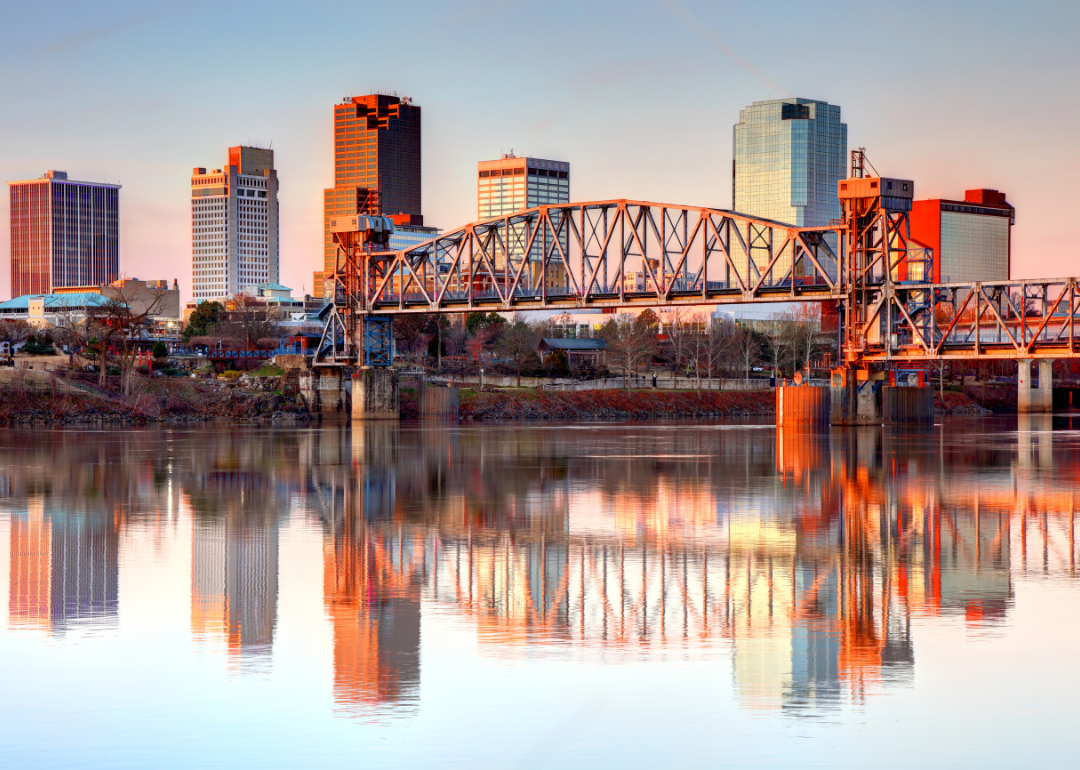
Canva
#7. Arkansas: 15% liberal, 41% conservative (tie)
Pulaski County, Arkansas
– Most liberal county: Pulaski County
— Democratic votes in 2020: 101,947 (60.0%)
— Total votes cast: 169,956
The most populous county in the state and home to the capital city of Little Rock, Pulaski County is relatively diverse and young. Only 50% of residents are white, while 37% are Black; the median age is around 38.
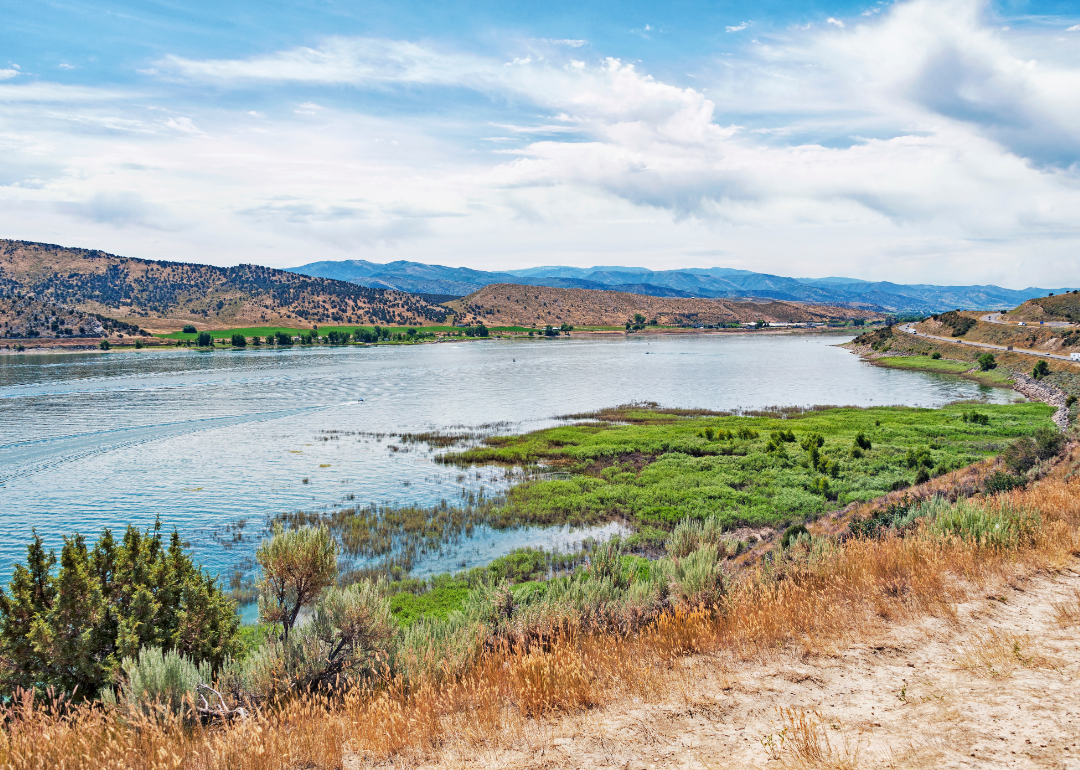
Canva
#7. Utah: 15% liberal, 41% conservative (tie)
Summit County, Utah
– Most liberal county: Summit County
— Democratic votes in 2020: 15,244 (58.0%)
— Total votes cast: 26,289
Summit County is the most liberal area in the state thanks mostly to the urban center of Park City, which makes up 8,576 of the county’s 43,036 residents. While Park City is “staunchly liberal,” other areas within the county itself lean more conservative. In the ski resort town of Park City, however, upper-class, well-educated residents have huge sway. With an average income of $91,470, Park City is the country’s second-wealthiest small urban area.
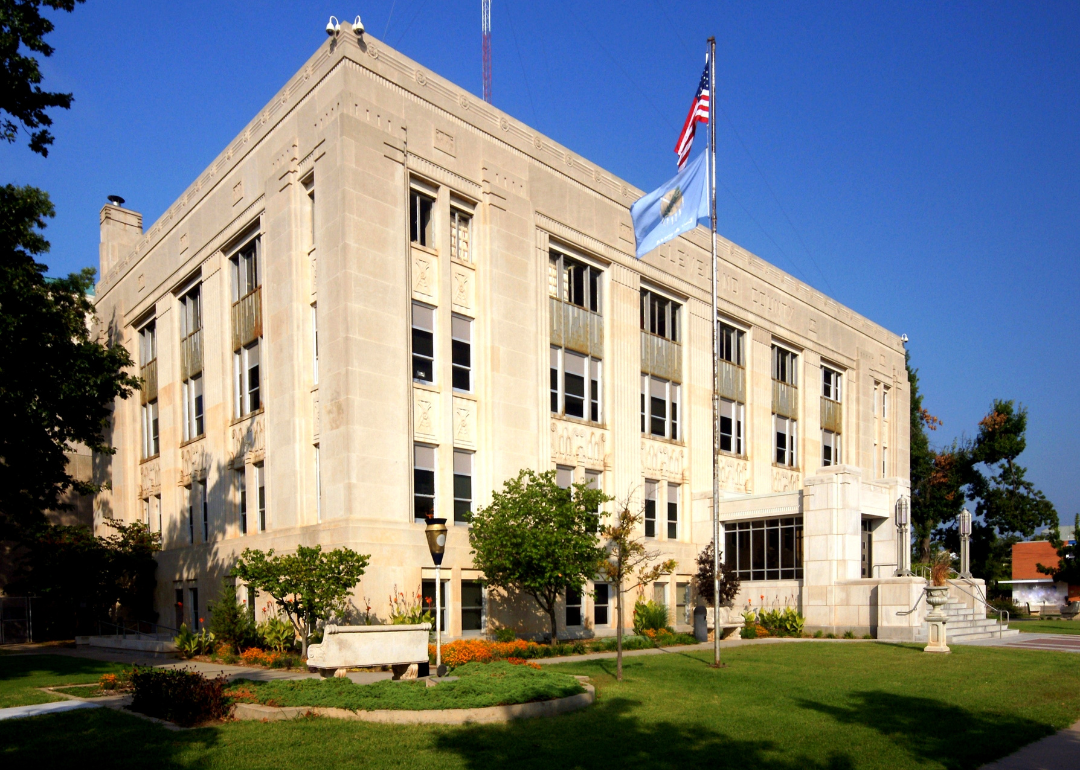
Canva
#6. Oklahoma: 18% liberal, 43% conservative
Cleveland County, Oklahoma
– Most liberal county: Cleveland County
— Democratic votes in 2020: 49,827 (41.6%)
— Total votes cast: 119,778
Cleveland County’s urban and educational hubs account for its ranking as the bluest county in the state. The county is part of the state’s largest metro area (Oklahoma City) and the state’s largest university (the University of Oklahoma). Additionally, the county is slightly more educated (34.98% of adults have bachelor’s degrees or higher) and younger (the median age is 37.3) than surrounding areas, which both correlate with higher populations of liberals.
Canva
#5. Tennessee: 17% liberal, 43% conservative
Shelby County, Tennessee
– Most liberal county: Shelby County
— Democratic votes in 2020: 246,105 (64.4%)
— Total votes cast: 382,055
Shelby County has three standout qualities that place it squarely in the blue. First, it is home to a large urban center (Memphis, with a population of over 600,000). Secondly, its population is majority Black, accounting for 54.6% of residents. Finally, it contains a large concentration of colleges and universities, including the University of Memphis, Rhodes College, Remington College, and the University of Tennessee Health Sciences Center.
Canva
#4. South Dakota: 13% liberal, 44% conservative
Oglala Lakota County, South Dakota
– Most liberal county: Oglala Lakota County
— Democratic votes in 2020: 2,829 (88.4%)
— Total votes cast: 3,200
Like other areas that are predominantly populated by Native Americans, Oglala Lakota is a Democratic stronghold in a Republican state (much like Glacier County, Montana, and Sioux County, North Dakota). 92.3% of the population is American Indian or Native Alaskan, which is unsurprising considering the entire county sits within the Pine Ridge Indian Reservation.
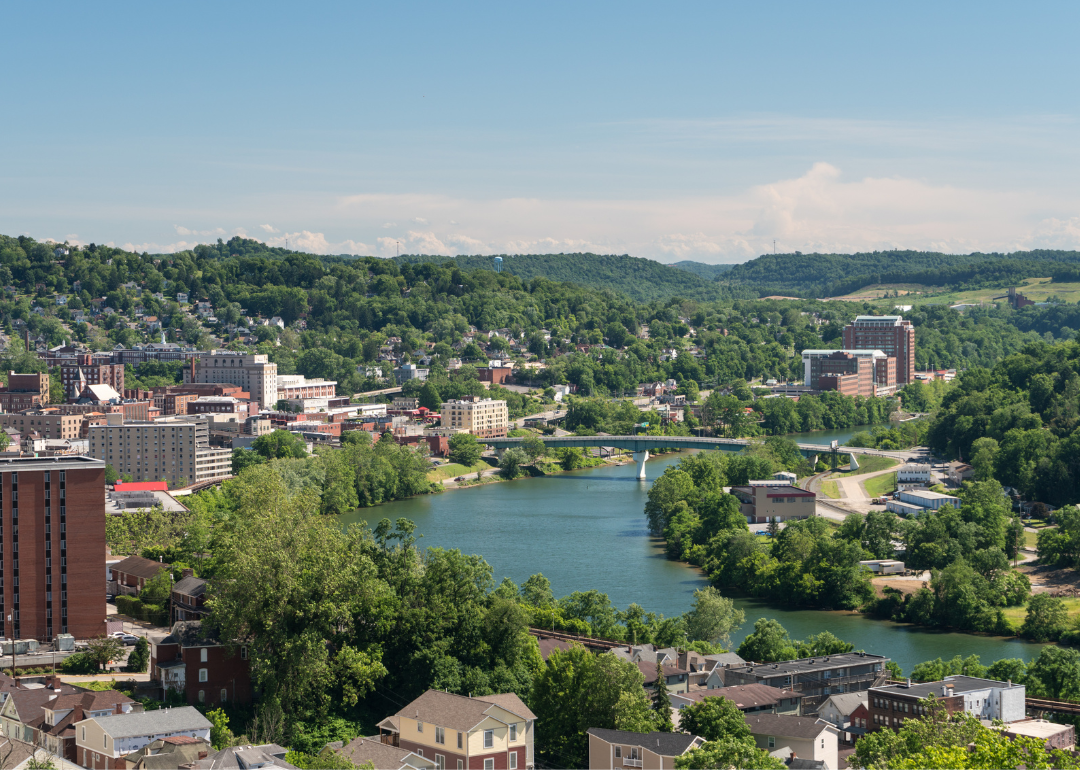
Canva
#3. West Virginia: 17% liberal, 45% conservative
Monongalia County, West Virginia
– Most liberal county: Monongalia County
— Democratic votes in 2020: 20,282 (48.2%)
— Total votes cast: 42,072
Monongalia County is home to Morgantown, a city that is growing starkly white-collar and well-educated compared to other areas of the state—and consequently, starkly liberal as well. Like many other college towns, Morgantown—home to West Virginia University—is generally younger, more affluent, and more Democratic than more rural areas.
C Rolan // Shutterstock
#2. Wyoming: 18% liberal, 46% conservative
Teton County, Wyoming
– Most liberal county: Teton County
— Democratic votes in 2020: 9,848 (67.1%)
— Total votes cast: 14,677
While Wyoming writ large is rural and agricultural, Teton County—which contains the Jackson ski resort—is a “playground for the ultra-rich,” largely accounting for its liberal leanings. Like Park City, Utah, and Blaine County, Idaho, ski towns come with wealth, and with wealth comes Democrats: the median income in Teton County is a whopping $94,498.
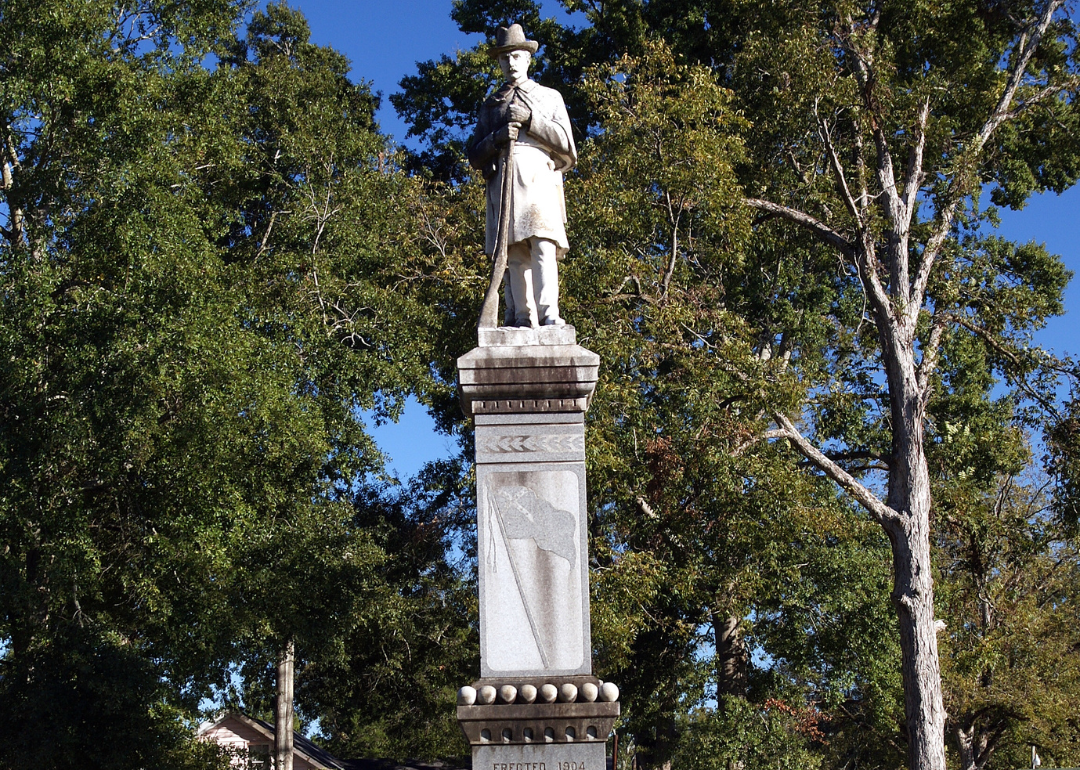
Canva
#1. Mississippi: 12% liberal, 50% conservative
Jefferson County, Mississippi
– Most liberal county: Jefferson County
— Democratic votes in 2020: 3,327 (86.1%)
— Total votes cast: 3,863
Though increasingly sparsely populated and mired in poverty, Jefferson County is also diverse. 84.9% of the population is Black, accounting for the region’s liberal character.
Data reporting by Sam Larson. Story editing by Brian Budzynski. Copy editing by Tim Bruns.
